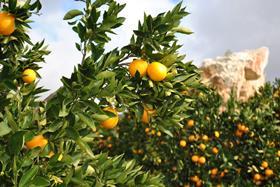
The South African citrus industry has been at great pains all season to point out how difficult and expensive it has become for them to trade in Western Europe, due to the measures relating to citrus black spot (CBS) disease they have to contend with. The end of the season, however, left them in a slightly embarrassing situation, because they had to admit that despite these difficult conditions, they managed to increase sales volumes in Europe significantly. They also did very well in most other markets, with the result being that the past season will be viewed as one of the best in recent years.
Taking this into account, it will be difficult for them to persuade decision-makers in Brussels that they need relief under the punitive cbs arrangements. They can, however, argue that complying with the EU restrictions is costing them R1bn or more, and that this money would be most useful if deployed back on the farm in new developments and job creation, in a country where the economy is in decline. They can also argue that the basis for the EU’s stance on cbs is wrong, and that South Africa is singled out while other countries with worse track records in terms of cbs interceptions are seemingly escaping the same kind of examination.
The South African government is still mulling over whether the matter should now go to the World Trade Organisation, as so vigorously promised by the South African trade minister Rob Davies about a year ago. Sources in government say that the Cabinet still needs to take a decision on this.
In recent times the Minister has had his hands full, dealing with the US government’s threat to boot South African agricultural products out as beneficiaries of the US government’s African Growth and Opportunities Act. The Act was recently renewed, but slow progress in implementing increased US meat and poultry exports to South Africa has led to President Obama ordering Congress to take action if South Africa misses another deadline in completing implementation arrangements.
With regard to the performance of the citrus growers in Europe this past season, one must conclude that they have exhibited extraordinary skill and perseverance to deal with such hostile conditions – who knows what they can do if the playing fields are evened out? Around 50m cartons of citrus from South Africa were sold in Europe this year, out of a total crop of 118m cartons. The industry exports 600,000 tonnes to Europe and generates R9bn from global exports, R4bn of which comes from the EU. This represents 40 per cent of the country’s citrus exports.
It is little wonder, then, that the industry is so committed to keeping this market open, and justifies why it has been prepared to invest so much in the process. Whether Brussels will grant them the relief they are asking for, is a matter for another day






No comments yet